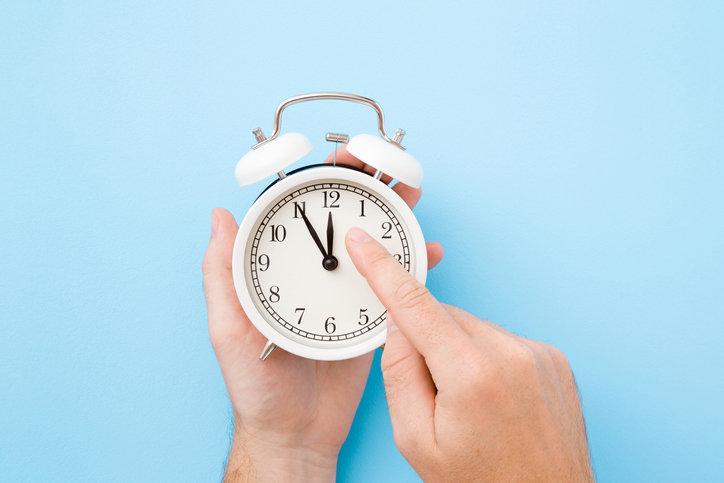With each change of time, we are a little lost: should we move the clocks forward or back? We are not the only ones confused by this measure, taken in 1976 to reduce the country's energy expenditure. Our body is also struggling to adapt.
Read also :
Covid-19: what you risk if you have cardiovascular problemsInternal clock: how does our body regulate itself?
Our body follows a 24-hour cycle, also called the circadian rhythm. Our sleep/wake system, our cognitive functioning, our body temperature, the production of hormones, appetite… it regulates most of our biological functions.
In humans, this internal clock is located in the hypothalamus. INSERM, which has studied its functioning, explains "It is composed of two suprachiasmatic nuclei each containing approximately 10,000 neurons which exhibit electrical activity oscillating over approximately 24 hours. This electrical activity is controlled by the cyclic expression of about fifteen clock genes".
Work has revealed that the circadian rhythm does not operate in a closed circuit. It relies on daylight, among other things, to continuously sync. Changes in time - whether summer/winter or the result of a change in time zone - thus disturb our internal clock, and by domino effect our biological functions.

Jian-Sheng Lin and Claude Gronfier, Inserm researchers from the “Waking” team at the Lyon neuroscience research center, explained in an article from the center that "in general, the transition to winter time is less complicated than the transition to summer time where we “lose" an hour of sleep. It should also be noted that the effects of the transition to summer time would be accentuated by the general lack of sleep of the French population, estimated between 30 and 90 minutes per day according to studies".
The disorders as well as the rehabilitation time vary however from one individual to another. Generally, fragile people are the most affected. Several health concerns can appear after a change of hours.
Changing the time: sleep, metabolic, cardiac disorders...
© Getty
Losing or gaining an hour has little visible consequence for most of us. However, experts recognize that these 60 minutes can be enough to disrupt the circadian rhythm in the most sensitive. The metabolism, the functioning of the cardiovascular system, the appetite or even the immune system can be affected.
Daylight Saving Time: Beware of Heart Attacks
The transition to summer time (in March) would be particularly delicate for health. Researchers from the University of Colorado at Denver showed in a study published in 2014 that the loss of one hour of sleep on Sunday caused by this change increased the risk of having a heart attack by 25% on Monday. The following days, it decreases again. On the other hand, at the arrival of winter time, the scientific team observed a 21% reduction in the risk of heart attack when you sleep an hour longer.
If the time change can cause problems, a few days are usually enough to synchronize with the new rhythm.
Switching between summer and winter time: how to prepare for it?
© Getty
Several tips can limit the effects of the time change whether it is summer or winter:
If fatigue is felt, it is possible to take a nap in the early afternoon. However, to avoid delaying bedtime a little more, it is advisable not to sleep more than 30 minutes.










Farewell Touch Bar, I won't regret...
Caddy, the only web server to use H...
Burkina Faso / Gabon (TV / Streamin...
What the future of work will not b...